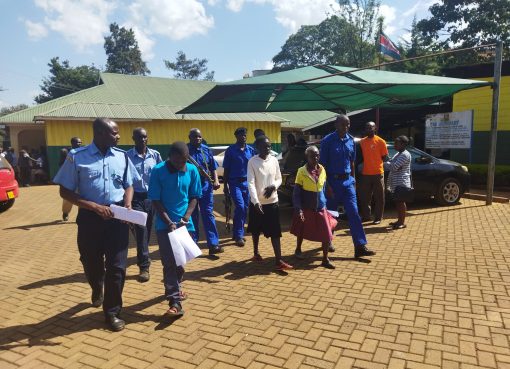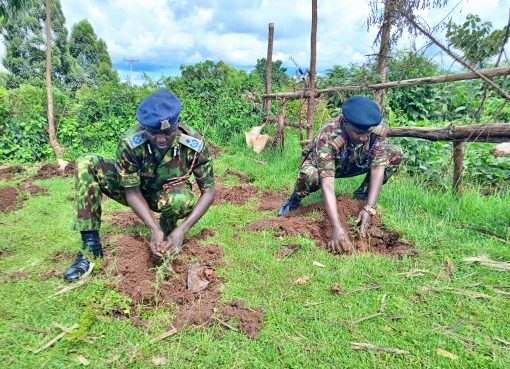

A honey processing machine issued to Masinya bee keeping group in Nyamache, Kisii County courtesy of National Government Affirmative Action Fund (NGAAF) has attracted most residents in the area who are now interested in apiculture.
The Chairman of Masinya Bee keeping group, Julius Makori, confirmed to KNA that the honey processing machine given to them last year courtesy of NGAAF has sparked a lot of attraction from residents in larger Gucha, who now have developed interest in apiculture because they are assured that the wearisome process of manual honey extraction is now a thing of the past.
“Previously our bee keeping group got it very rough convincing people to venture into bee keeping in order boost the limited supply of the commodity to the increasing demand, alleging that the manual extraction procedure was cumbersome and it’s only the hardened who could endure,” Mr. Makori said.
“Our group is currently engaged in a rigorous exercise of training interested individuals and groups of farmers in larger Gucha, who want to venture into bee keeping because they have discovered that it is less work intensive yet can give back huge profits so long as you have the correct and standard bee hives,” the chairman explained.
The secretary to Masinya bee keeping group, Cyrus Manyange, told KNA that their group that has been in existence since 2009, hardly received people who were inquiring about bee keeping, apart from the Sub County livestock extension officer and other professionals who visited to offer technical advice and train on how to maximize profits from the venture. But after receiving the honey processing machine, the situation has totally changed.
“Everybody with a tree plantation far from their residing compound wants to undertake bee keeping because extracting honey, which many of them dreaded has been made easy and efficient through the honey extraction machine,” Manyange noted.
“Getting more people who want to practice bee keeping is a relief to our group since it will solve the challenge of underutilizing the machine, which has capacity to process 500kg of honey in a day,” he noted.
Manyanga said the group will now have sufficient honey combs to extract honey, saying it is a mini factory, hence requires sustainable supply of raw materials for it to operate as required.
He said that at the moment, one standard bee hive will require around Sh. 15,000 to buy and install, and that farmers can be increasing their hives with time to increase revenue gradually until they get to the apex of their targeted profit from the venture.
“Kenya Industrial Research and Development Institute have been of paramount importance in giving us the technical support we need. They have been sending us professionals in bee keeping, to ensure that we slowly but surely grow Masinya bee keeping group into mega honey production industry in this region and beyond,” the secretary pointed out.
He however, cautioned honey farmers to ensure they identify and access the right trees, saying flowers are the main raw materials that bees use to make honey.
“There are specific indigenous trees which are capable of flowering throughout the year, but are almost becoming extinct due to human action of deforestation that need to be replanted and protected in order to be assured of constant production of honey,” Makori noted.
Makori further observed that the pesticides used on farms were posing dangers to honey keeping, saying the chemicals endangered both the bees and the plants that are a source of pollen.
The Gucha Sub County livestock officer, Francis Mwangi noted that honey production had been unexploited in Kisii, a region that is favourable for the venture.
“All those who live in Kisii and are still undecided on which agricultural venture to undertake should try bee keeping, and they will never regret,” Mwangi urged.
By Deborah Bochere



